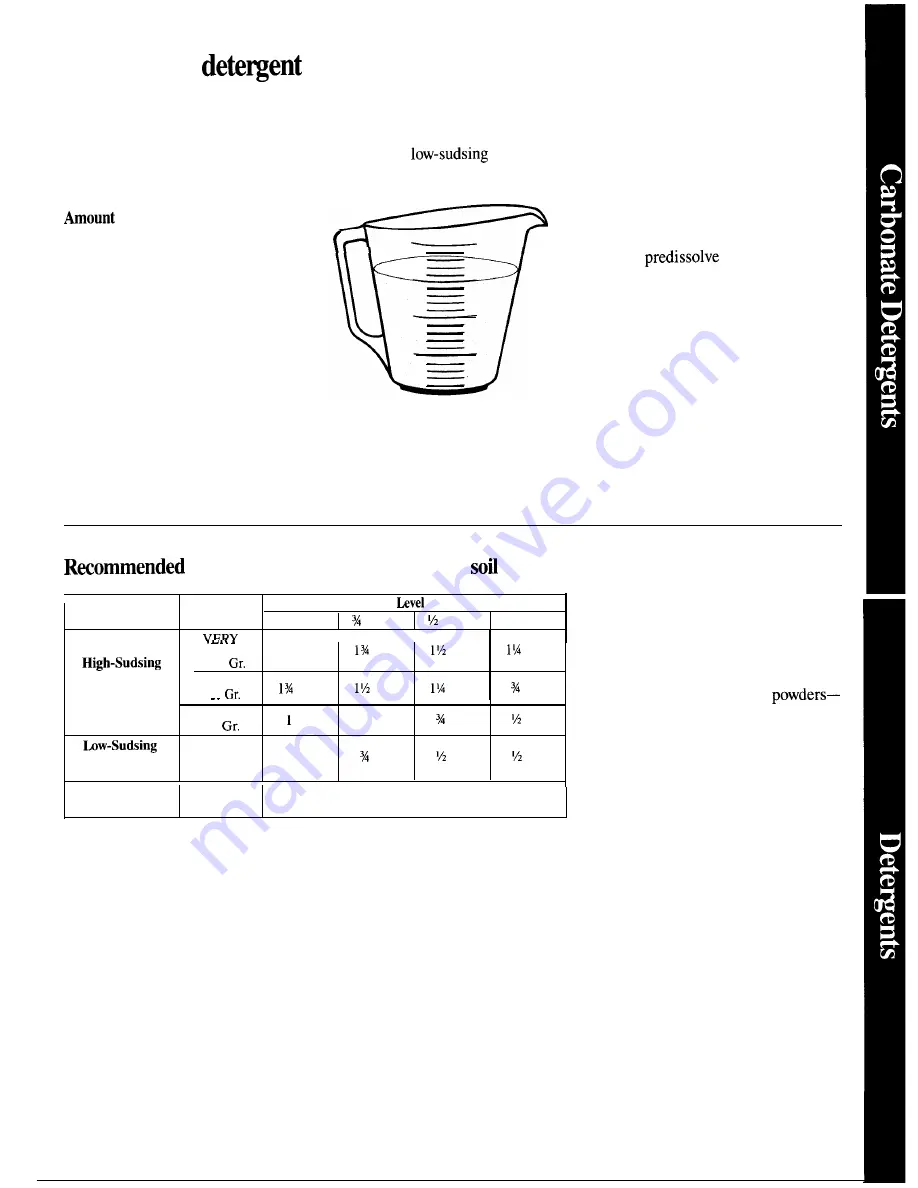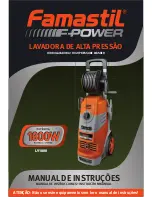
How much
should you use?
The use of a sufficient amount
of detergent is one of the most
important things you can do to
make sure your wash comes out
clean.
required varies
according to:
1. Water hardness
2. Amount of soil
3. Size of load
4. Type of detergent
5. Wash temperature
Use more detergent if
you have. . .
1. Hard water
2. Large loads
3. Greasy or oily soils
4. Lower wash temperature
5. Low phosphate detergent
If the recommended amount of
detergent produces too many suds,
switch to a
detergent
brand, and follow instructions
on package.
Using too little detergent is
a common cause of laundry
problems. Always measure
detergent in a standard
measuring cup.
How to use detergent—granular
or powdered:
Place detergent in the filter pan for
normal conditions, but, for best
results, put it next to the agitator
after the clothes have been loaded.
If your detergent doesn’t dissolve
well,
the detergent in
hot water, then pour directly into
the wash basket.
amount of detergent for average
load
Water
Water
Setting
Hardness
FULL
FULL
FULL
LOW
I
I
Powder Type
HARD
2 cups
cups
cups
cups
10-20
HARD
4-10
cups
cups
cups
cup
SOFT
0-4
cup
1 cup
cup
cup
Concentrated
o-1o
Grains
1 cup
cup
cup
cup
Powder Type
1.
Use recommended amount of
detergent for your load and water
hardness as shown in guide.
2. When using other detergent
types-low and normal suds, powders,
liquids, non-phosphate
follow recommendations on package.
3. For hard water treatment, see
page 14.
LIQUID
o-1o
Grains
FOLLOW PACKAGE DIRECTIONS
13










































